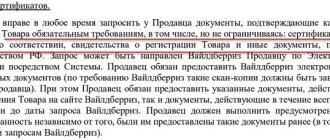What to do if you face a fine for illegal use of technical knowledge
Each such case is completely individual. If the person completely agrees with the claim, then compensation is simply paid to the copyright holder.
Otherwise, the case goes to the arbitration court. Experts note that most of the compensation does not exceed 100 rubles, i.e. everything takes place in a simplified form, without court hearings. However, court participants have every right to request a transition from summary trial to regular trial, which experts say is the best solution. Thanks to this, the defendant has the right to show products with his own technical specifications. This decision is due to the fact that most defendants lose in court, fully relying on a simplified process. The chance of winning the case for the involved party increases many times.
Nowadays, it is necessary to be legally literate. This will help everyone who is going to start their own business to avoid mistakes in creating their own sign. This will also protect the copyright holder from unnecessary problems with those who are trying to make an easy profit by copying technical specifications.
What is illegal use of a trademark - the concept and penalties for the act
The concept of a trademark includes the designation of a certain type of product or product.
For example, a trademark can be a company name, logo, or slogan.
By using a trademark, a consumer can determine the quality of a product or service, as well as its manufacturer, and determine the reputation of the organization.
A trademark can only be used by the company to which it belongs. Without the consent of management, the use of a trademark and other attributes is prohibited - it does not matter whether the citizen knew about it or not. Thus, it is believed that when using someone else's trademark, he will simply break the law.
The owner of the rights to a trademark can prohibit - or, conversely, allow its use, without explaining the reasons to the person who wants to use the mark, etc.
Let us note that for non-compliance with legislation in the field of trade in products, the following liability is provided:
- Civil law. In this case, the violator negotiates with the trademark owner for damages and monetary compensation for his illegal action.
- Administrative. As a rule, such liability arises when a citizen has committed an act, the consequences of which caused significant harm to the trademark owner or consumers. For example, products were sold without any marking, but with a trademark belonging to a large well-known company. After application, consumers noticed the poor quality of the products, lost interest and desire to purchase quality products from a real manufacturer. For such an act, management may demand compensation for the damage to the company and impose a fine on the seller of low-quality, counterfeit goods.
- Criminal liability. If harm was caused to the life and health of consumers, then the punishment becomes more severe. The fine is paid to the state, as well as compensation for moral damage to the victims.
We list the legal acts that regulate the use of a trademark:
- Article 1229 of the Civil Code of the Russian Federation. The right to use signs, markings and protect the result of intellectual activity of citizens has been determined.
- Article 1515 of the Civil Code of the Russian Federation. The concept of counterfeit is indicated and deciphered.
- Article 180 of the Criminal Code of the Russian Federation. Criminal penalties for the use of trademarks are described.
- Article 14.10 of the Code of Administrative Offenses of the Russian Federation. Administrative penalties for the use of other people's legal means are defined.
You can rely on these articles if controversial situations arise.
Article 180. Illegal use of means of individualization of goods (works, services)
Article 180. Illegal use of means of individualization of goods (works, services)
[Criminal Code] [Special Part] [Section VIII] [Chapter 22]
. Illegal use of someone else’s trademark, service mark, appellation of origin of goods or similar designations for homogeneous goods, if this act was committed repeatedly or caused major damage, -
shall be punishable by a fine in the amount of one hundred thousand to three hundred thousand rubles, or in the amount of the wages or other income of the convicted person for a period of up to two years, or by compulsory labor for a term of up to four hundred eighty hours, or by corrective labor for a term of up to two years, or by forced labor for a term of up to two years. up to two years, or imprisonment for a term of up to two years with a fine in the amount of up to eighty thousand rubles or in the amount of wages or other income of the convicted person for a period of up to six months.
. Illegal use of warning markings in relation to a trademark or appellation of origin of goods not registered in the Russian Federation, if this act was committed repeatedly or caused major damage, -
shall be punishable by a fine in the amount of up to one hundred twenty thousand rubles, or in the amount of the wages or other income of the convicted person for a period of up to one year, or by compulsory labor for a term of up to three hundred and sixty hours, or by corrective labor for a term of up to one year.
. Acts provided for in parts one or two of this article, committed by a group of persons by prior conspiracy, -
shall be punishable by a fine in the amount of two hundred thousand to four hundred thousand rubles, or in the amount of wages or other income of the convicted person for a period of eighteen months to three years, or by forced labor for a term of up to four years, or by imprisonment for the same term with a fine of up to one hundred thousand rubles or in the amount of wages or other income of the convicted person for a period of up to one year or without it.
. Acts provided for in parts one or two of this article, committed by an organized group -
shall be punishable by a fine in the amount of five hundred thousand to one million rubles, or in the amount of the wages or other income of the convicted person for a period of three to five years, or by forced labor for a term of up to five years, or by imprisonment for a term of up to six years with a fine of up to five hundred thousand rubles or in the amount of wages or other income of the convicted person for a period of up to three years or without it.
Note. In this article, major damage is defined as damage the amount of which exceeds two hundred and fifty thousand rubles.
How to file an objection to the registration of a trademark?
An application for challenge can be filed by the interested copyright holder on the basis of Art. 1513 of the Civil Code of the Russian Federation.
The procedure for challenging a trademark is as follows:
- The application is submitted to the Chamber of Patent Disputes (hereinafter referred to as the Chamber of Patent Disputes).
- From the Chamber, the application goes to FIPS, after which you need to pay a fee in the amount of 13.5 thousand rubles.
- The application of the teaching staff is being reviewed. There may be several meetings. Review may take from 3 to 6 months.
- If the plaintiff does not agree with the decision of the PPP, then he can file a claim with the Intellectual Property Rights Court.
- Each situation is considered individually with an eye to paperwork.
Types of use of TK without permission of the copyright holder
It can be difficult to understand when exactly wrongdoing occurs. Below are the most common cases of violation of the law in the form of the use of counterfeit goods or infringement of exclusive rights:
- Release of products under someone else's mark, the copyright holder of which did not give his consent. As an example, we can cite almost any market product, where under one or another brand of clothing there is something hidden that is far from original.
- Advertising and sale of goods under someone else's technical specifications. There was a Louis Vuitton restaurant in South Korea, and a clothing brand has the same name.
- Using a sign to place it on documentation that accompanies the movement of goods. Let's turn again to markets where, under the guise of original Adidas clothing, people promote their items.
- Placing someone else's mark on advertising images in order to increase sales of their products. As an example, we can cite any public catering service that often uses Macdonalds’ technical specifications to advertise its business.
- Use by the violator of the original technical specification to advertise their products or services on the Internet.
Trademark litigation and compensation collection
The first instance through which cases regarding this offense pass is the arbitration court (Article 27 of the Arbitration Procedure Code of the Russian Federation). The Intellectual Property Rights Court considers cases only at the cassation stage, if the case so requires. The Supreme Court of the Russian Federation in such cases acts as a supervisory body.
- Statement of Claim Before filing a claim, you should ensure that the form and content comply with the official regulations. All claims for illegal use of a trademark should be formalized as follows:
- Full name of the judicial authority to which the application is being submitted;
- Information about the defendants in this case and the plaintiff;
- Title of the case (for example, “Statement of Claim for Illegal Use of a Trademark”);
- A reasonable description of the violation and the defendant's response;
- Competent presentation of all requirements;
- References to the articles of civil and civil procedure legislation necessary in this case;
- If property claims are made - the full cost of the claim;
- List of attached documents;
- Documents and evidence.
The fact of violation must be established and proven by the copyright holder himself, while the law does not place any restrictions on the evidence provided. Exceptions are acts that have signs of a criminal offense.
Documents include:
- title documents;
- contracts;
- acts;
- invoices;
- payment documents;
- correspondence between the parties regarding the dispute, etc.
IMPORTANT: If there are no necessary attachments to the application, this may lead to a complete refusal of the claim or termination of the case.
To apply to the arbitration court, the parties need to confirm their legal status with relevant documents (certificate of registration, extracts from state registers of legal entities and individual entrepreneurs in relation to the plaintiff and defendant).
Results of challenging the technical assignment
After filing an application for appeal and making a decision by the federal body, if the answer is positive, either a new certificate is received or the current one is canceled (depending on the reasons for the challenge).
How to prevent illegal use of a trademark
To ensure that a trademark assigned to the copyright holder is not used, special measures are required. Here are a few of them:
- You should never forget about preventive measures. Using the services of lawyers, you can check whether the designation of the company that the copyright holder is planning to open is free.
- Checking points of sale. It is necessary to allow experts to check your field of activity.
- Verification of supplier rights. If the copyright holder decides to send his goods abroad, then he simply needs to be sure that the supplier has all the legal rights to do so.
- A technical site cannot be forced to remain empty for more than 3 years. If this happens, then competing companies will be able to go to court to register a similar trademark.



